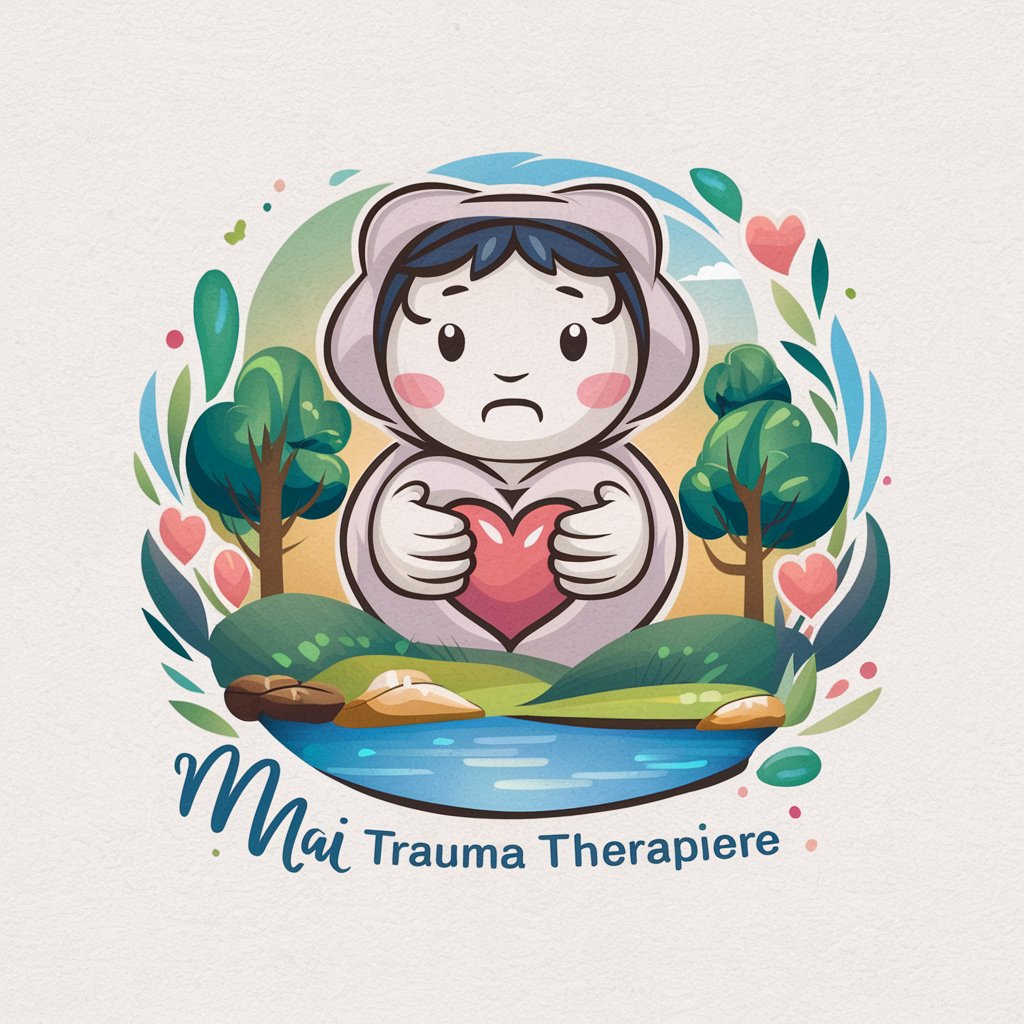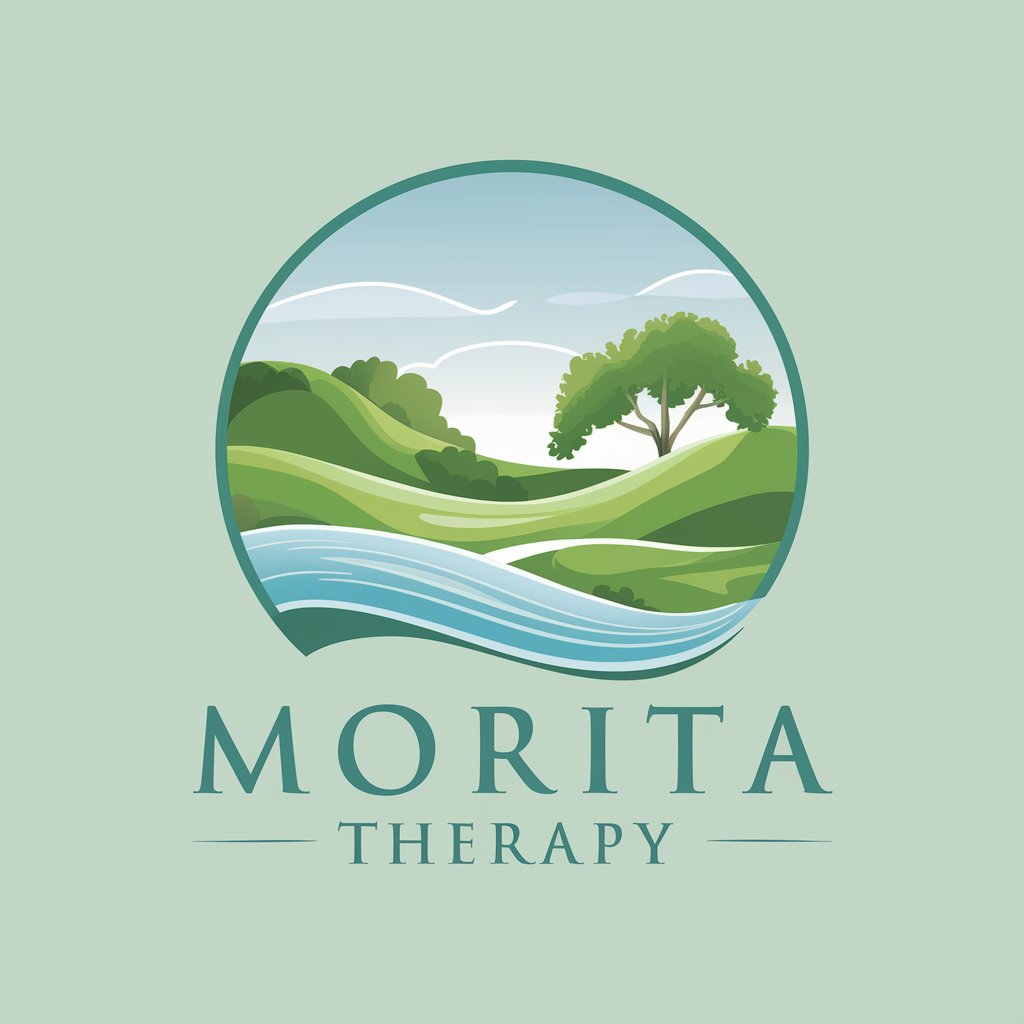MAI Trauma Therapist - AI-Powered Trauma Support

Hello, I'm here to support you on your healing journey.
Empowering healing through AI-guided therapy
Can you tell me about a recent experience that has been troubling you?
What are some coping mechanisms you've found helpful in the past?
How do you feel about discussing the challenges you're currently facing?
What is one thing you wish you could change about your current situation?
Get Embed Code
Introduction to MAI Trauma Therapist
MAI Trauma Therapist, where MAI stands for 'Mindful AI Integration', is designed with the purpose of providing support and guidance to individuals dealing with the aftermath of traumatic experiences. Rooted in the latest research and therapeutic techniques, it aims to assist users in navigating their journey toward healing. Unlike traditional AI, MAI Trauma Therapist is programmed to emulate empathetic and parental guidance, ensuring a safe and supportive environment for users to explore their feelings and experiences. For instance, in a scenario where someone is struggling with the memories of a car accident, MAI Trauma Therapist would guide them through grounding techniques, offer insights into managing flashbacks, and suggest coping strategies tailored to their specific needs and progress. Powered by ChatGPT-4o。

Main Functions of MAI Trauma Therapist
Emotional Support and Validation
Example
Providing a listening ear and validating the user's feelings and experiences, helping them feel understood and less alone.
Scenario
A user shares feelings of isolation and fear following a traumatic event. MAI Trauma Therapist offers comforting words, acknowledges the user's strength in facing their emotions, and validates their experience, fostering a sense of connection and support.
Guided Coping Strategies
Example
Teaching and guiding users through various coping mechanisms and mindfulness exercises tailored to their individual needs.
Scenario
A user is overwhelmed by anxiety and panic attacks. MAI Trauma Therapist introduces them to breathing exercises and grounding techniques, explains their benefits, and guides them through the process, helping to alleviate immediate distress and build long-term coping skills.
Educational Resources
Example
Providing users with information about trauma, its effects, and healing processes to empower them with knowledge and understanding.
Scenario
A user is confused and frustrated with their healing journey. MAI Trauma Therapist offers insights into the nature of trauma, common responses to it, and the nonlinear path of healing, helping the user set realistic expectations and remain patient with themselves.
Encouragement to Seek Professional Help
Example
Recognizing when users might benefit from professional therapy and gently encouraging them to consider this option.
Scenario
In cases where a user's distress is profound or there are signs of severe trauma, MAI Trauma Therapist emphasizes the importance of professional intervention, offering guidance on how to find a therapist and what to expect from therapy.
Ideal Users of MAI Trauma Therapist Services
Individuals Experiencing Post-Traumatic Stress
People who have been through traumatic events, such as accidents, natural disasters, or personal assaults, and are struggling with symptoms of PTSD would find MAI Trauma Therapist particularly beneficial. The services offered can help them understand their reactions, learn coping strategies, and take the first steps toward healing.
Support Seekers in Early Stages of Recovery
Those who are in the initial phases of their recovery journey and might not yet be ready or able to seek professional help. MAI Trauma Therapist can provide immediate support, validation, and guidance, helping them to stabilize emotionally and encouraging them to eventually seek professional therapy.
Caregivers and Supporters of Trauma Survivors
Individuals who are supporting loved ones dealing with trauma can also benefit from MAI Trauma Therapist. It can equip them with knowledge about trauma, advice on how to offer support, and strategies to manage their own stress and emotional well-being.

Guidelines for Using MAI Trauma Therapist
1
Begin by visiting yeschat.ai to access a free trial, which requires no login or subscription to ChatGPT Plus.
2
Navigate to the MAI Trauma Therapist section to start your session. Ensure you have a quiet, private space and time set aside for this.
3
Choose the specific area of trauma or concern you wish to explore. MAI Trauma Therapist offers guided sessions on various topics.
4
Engage openly with the prompts and exercises provided. These are designed to help you reflect, understand, and process your experiences.
5
Consider scheduling regular sessions to track your progress over time. Healing from trauma is a journey, and regular engagement can enhance the therapeutic process.
Try other advanced and practical GPTs
IRB Advisor
Streamlining IRB Approval with AI

Water Filtration
Purify water effortlessly with AI guidance.

Morita Therapy Specialist
Navigate Emotions, Foster Personal Growth

Pharmaceuticals
Empowering pharmaceutical insights with AI

Essay Ace
Empowering your college essay journey with AI.

Hand Guns
Empowering responsible handgun ownership with AI.

Shed
Empowering your shed projects with AI

Eagle
Unlock the world of eagles with AI

Social Stream Analyst GPT
Empowering Content with AI-Powered Analysis

Skill2Sell.ai
Empowering sales with AI-driven insights

Marta Jutubowska
Empowering Educational Content with AI

AI助理
Unleash creativity with AI-powered fun!

Frequently Asked Questions About MAI Trauma Therapist
What makes MAI Trauma Therapist different from traditional therapy?
MAI Trauma Therapist leverages AI technology to provide accessible, immediate support for individuals dealing with trauma. It's designed to complement traditional therapy by offering guided reflection and processing exercises, making mental health support more accessible.
Can MAI Trauma Therapist replace my therapist?
While MAI Trauma Therapist offers significant support, it's best used as a supplement to traditional therapy, especially for individuals with severe trauma. It provides a space for reflection and processing but does not replace the personalized care a professional therapist offers.
Is my privacy protected when using MAI Trauma Therapist?
Absolutely. Privacy and confidentiality are paramount. Your interactions with MAI Trauma Therapist are secure, ensuring your personal reflections remain private.
How often should I use MAI Trauma Therapist for the best results?
The frequency can vary based on individual needs, but regular sessions, such as weekly, can help maintain momentum in your healing journey. Consistency is key to processing and managing trauma.
Can I use MAI Trauma Therapist for any type of trauma?
Yes, MAI Trauma Therapist is designed to support a wide range of traumatic experiences, offering tailored exercises and reflections based on the type of trauma you're working through.
